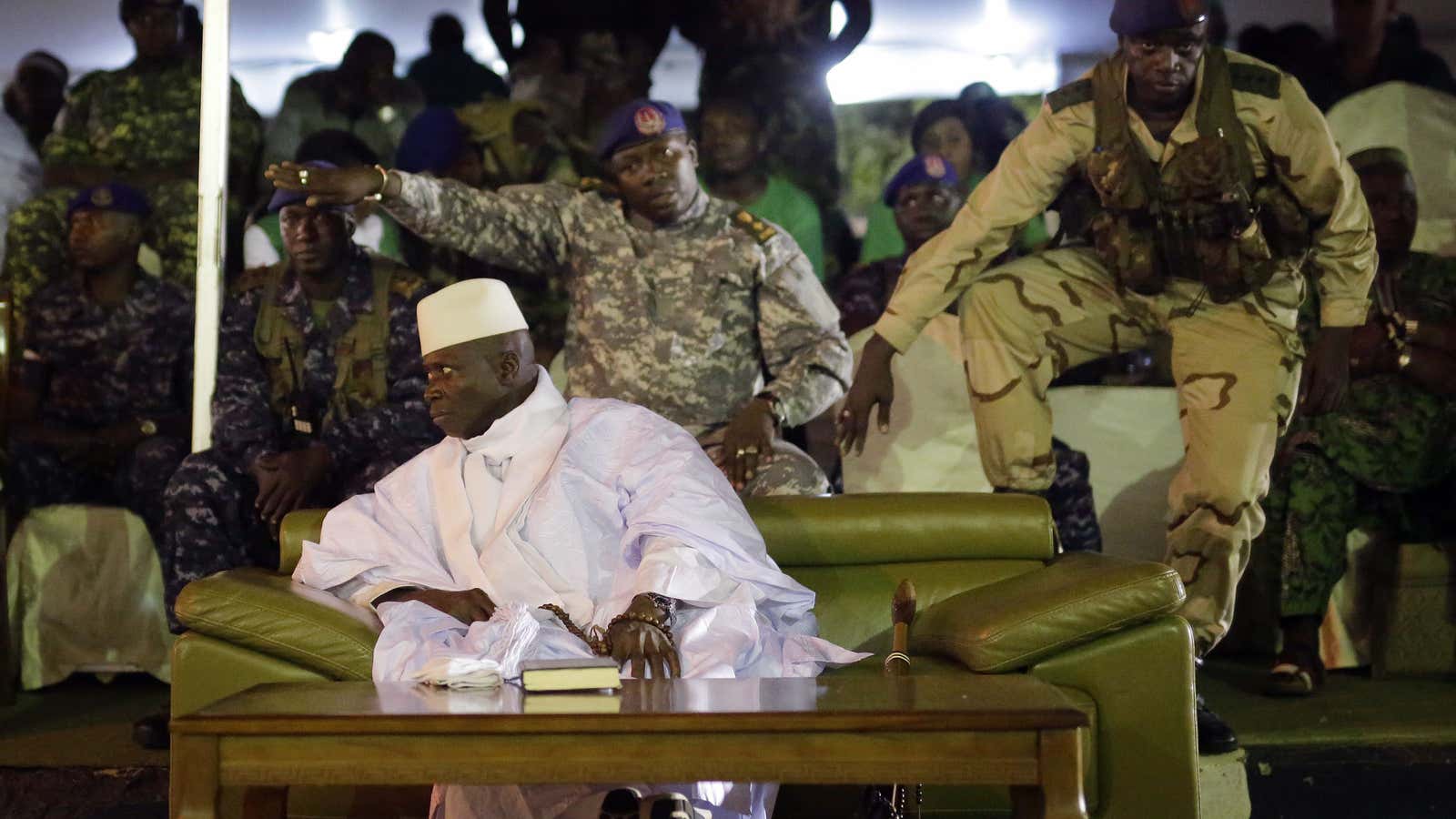Gambia, mainland Africa’s smallest country, has switched off its internet, a tactic that is becoming increasingly common in the continent around election season.
Internet in the West African nation went off on late Wednesday night (Nov. 30), according to American content delivery company, Akamai Technologies. Several social media users also pointed to the fact that international phone calls were not going through to the country.
The shutdown comes as the country prepares to vote in a presidential election on Thursday (Dec. 1), with president Yahya Jammeh facing a rare challenge from an opposition coalition who hope to end his 22-year rule. More than 880,000 registered voters are expected to vote, with Jammeh warning the opposition against protesting.
“Our election system is fraud-proof, rig-proof, you cannot rig our elections,” Jammeh, who once said he intended to rule for “one billion years,” asserted.
Speculations and unconfirmed reports had been brewing before election day that the government wanted to shut down the internet. The Keep It On campaign, which includes more than 100 organizations from nearly 50 countries, had written a joint letter imploring president Jammeh not to suspend internet services.
“Elections represent the most critical moment in a democracy, and the internet enables free expression and the fulfillment of all human rights. … We implore you to keep the internet on,” the letter addressed to Jammeh alongside the Gambia Public Utilities Regulatory Authority, the country’s permanent mission at the United Nations, besides the African Commission on Human and People’s Rights said.
As the Keep It On campaign pointed, internet shutdown has become the rule rather than the exception in many countries in Africa. Government-mandated shutdowns besides blocking social media outlets have previously taken place before or during elections in Uganda, Burundi, Mali, Gabon, Congo and Ethiopia.
